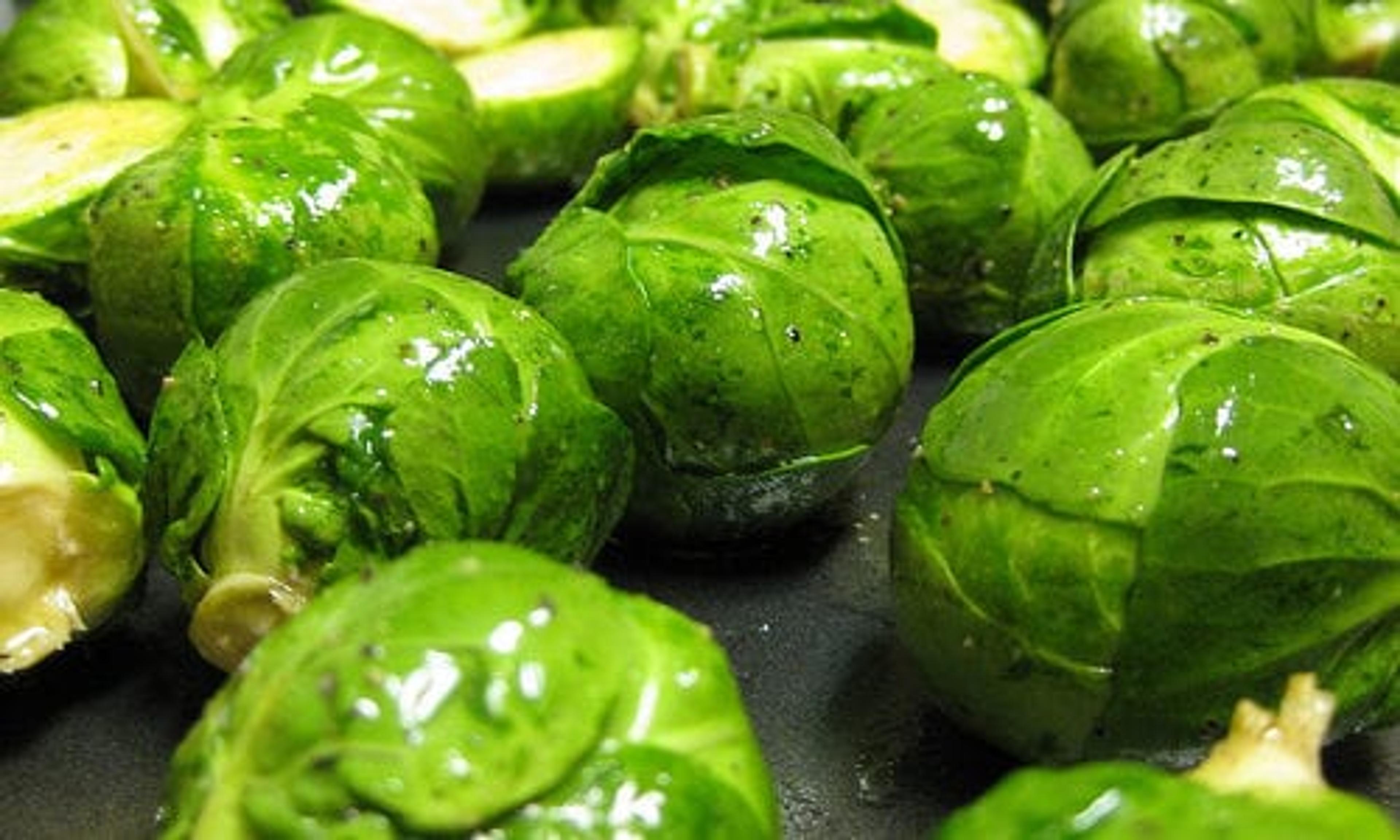Misunderstood Vegetable of the Week: Let Brussels Sprouts Become an Important Part of Your Diet
Registered Dietician
| 3 min read

When you hear the words “Brussels sprouts,” do you think yum, or gross? Well, hopefully after reading this blog you will be thinking yum. I personally like Brussels sprouts. I won’t lie to you, it took a few tries, but now I truly do enjoy them. Remember it takes 20-30 times to try something before you can acquire a taste for it.
Brussels sprouts are another cruciferous vegetable, which means they are related to cabbage and broccoli. When I was younger I used to call them “baby cabbages,” because that is what they look like.
Does a Body Good
Brussels sprouts have many health benefits; they help fight and prevent cancer, because they are filled with antioxidants, and they help the body get rid of toxins efficiently. Brussels sprouts also have anti-inflammatory properties, which is good for overall health and could also help improve heart health. They are high in vitamins K and C and have very little fat, no saturated fat and very few calories. They are also a very good source of numerous other nutrients including folate, vitamin A, potassium, vitamin B6 and thiamin (vitamin B1) and a good source of phosphorus, magnesium, riboflavin (vitamin B2), vitamin E, calcium, and niacin. One serving is just a half cup cooked or one cup raw.
One cup of Brussels sprouts contain:
- 38 calories
- 0.3 grams of total fat
- 0 saturated fat
- 0 cholesterol
- 8 grams of total carbohydrates
- 3.3 grams of fiber
- 3 grams of protein
- 37 mg of calcium
- 342 mg of potassium
- 194% of the daily value for vitamin K
- 124% of the daily value for vitamin C
Enjoying Brussels Sprouts
Before you cook your Brussels sprouts, you want to make sure to wash and clean them thoroughly. Since there are leaves it is best to wash them under running water or in a bowl of water because sometimes dirt or insects get stuck in the layers of leaves. Also don’t forget to take off any yellowish colored outer leaves.
In my opinion, they are best cooked, but I have seen them uncooked and then served in a variety of cold salads before too. I recommend quartering or cutting the Brussels sprouts in half so they cook faster and evenly. You don’t want to overcook them because then you lose a lot of the nutrients.
Honestly, my favorite way to prepare them is to just steam them. However, here are a couple recipes you can try this holiday season to get Brussels sprouts into your diet (I love these too):
- Roasted Brussels Sprouts — This is a super-easy recipe with a clear, simple way to enjoy Brussels sprouts. Sometimes I add almonds or other nuts for a fun crunch. I also like to squeeze some lemon or lime on the Brussels sprouts right before serving.
- Roasted Brussels Sprouts with Pomegranates and Vanilla-Pecan Butter — I had a friend who made these for Thanksgiving. I made them after hearing about them, but I made a couple changes to make it healthier and because I didn’t have some of the ingredients. First, I did not use real butter, I used Brummel and Brown, which is a yogurt-based butter substitute that cooks well. I also did not have a vanilla bean, so I used a teaspoon of vanilla extract. And I also did not have pomegranate molasses, so I used regular molasses. Either way, it was an excellent dish.
If you want some more ideas for Brussels sprout recipes, check out these from “Eating Well.”
How do you feel about Brussels sprouts? Are you willing to try them? Do you have a favorite recipe? Let me know how it goes, I would love to hear that you have become a fan of Brussels sprouts, too.
Photo Credit: johnsu01





